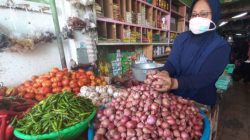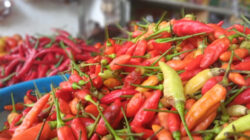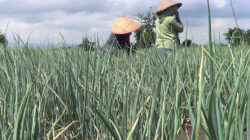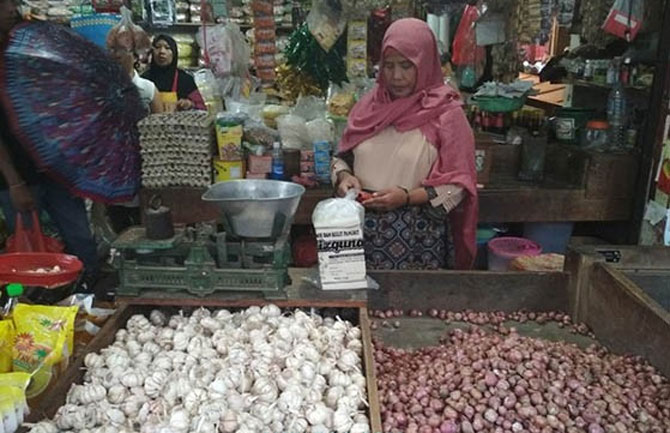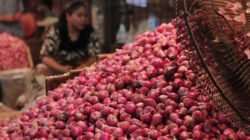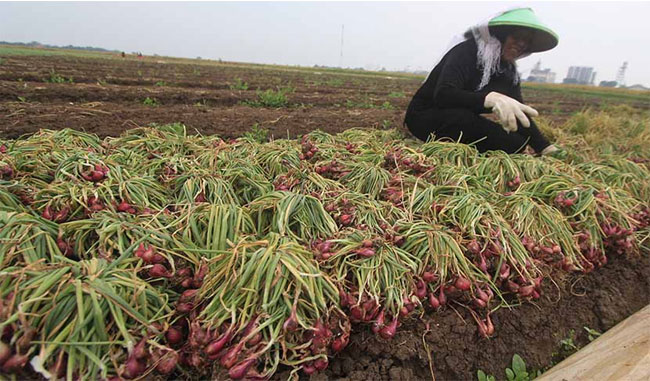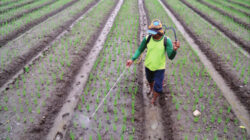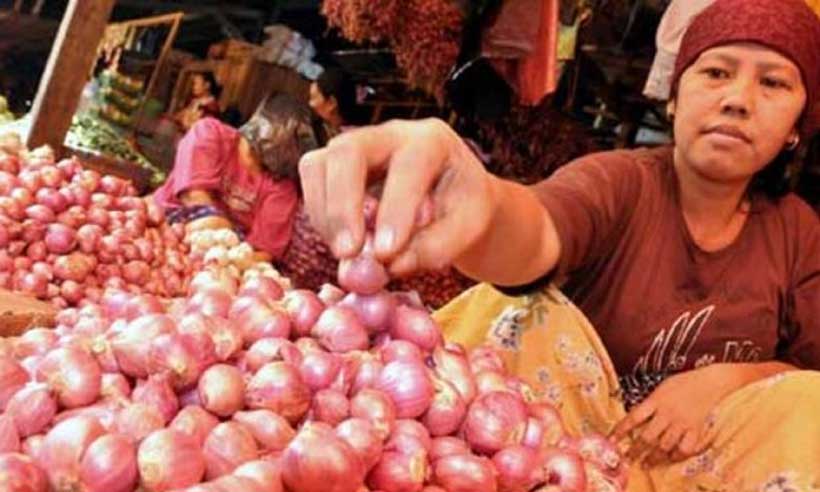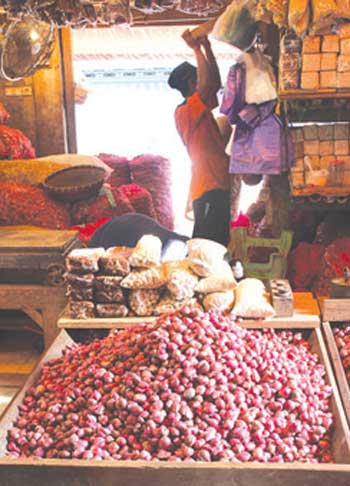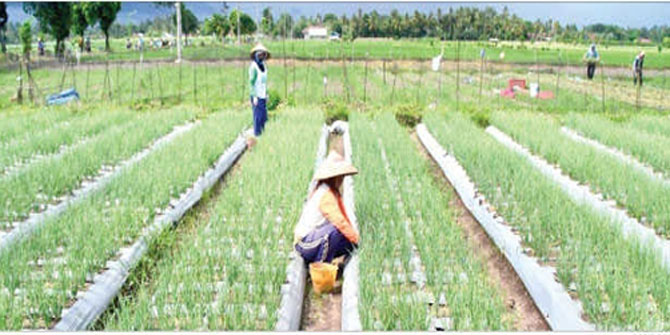
MUNCAR – Hujan yang sering turun akhir-akhir ini, mulai mengancam tanaman bawang merah yang ada di Desa Tembokrejo, Kecamatan Muncar. Bawang merah yang sudah siap panen, kini banyak yang mulai membusuk.
Salah seorang petani bawang merah, Muklis, 40, asal Desa Tembokrejo, Kecamatan Muncar, mengatakan tanaman bawang merah miliknya sudah terlihat membusuk, terutama di bagian bongkol bawang dan daun yang layu.
“Tanaman masih berumur sepuluh hari, jadi sangat rentan membusuk jika turun hujan secara terus-menerus,” katanya.
Tanaman bawang merah itu, terang dia, salah satu tanaman yang tidak tahan terhadap air dalam jumlah banyak. Makanya, suplai air harus disesuaikan dengan kebutuhan tanaman. “Kami harus ekstra melakukan perawatan, termasuk biar tidak terserang hama,” ungkapnya.
Selain mengancam tanaman yang mudah membusuk, jelas dia, hujan yang sering turun itu juga membuat harga bawang merah di tingkat petani menjadi anjlok. Saat ini, harga bawang merah di tingkat petani itu hanya Rp 15 ribu per kilogram. Padahal sebelumnya, harganya mencapai Rp 30 ribu per kilogramnya. “Turunnya cukup tinggi, sekitar 50 persen,” ungkapnya.
Petani bawang merah lainnya, Lauhin, 45, mengaku baru memanen bawang merah. Hasil panennya itu, kini disimpan dalam gubuk agar terlindung dari hujan. “Daunnya biar layu dan kering, kulit luar juga biar mengelupas,” terangnya.
Menurut Lauhin, hujan yang sering turun akhir-akhir ini berdampak pada tanaman bawang merah. Saat dipanen dan di panen, justru malah membusuk. “Jika bonggol bawang merah membusuk, harganya akan anjlok,” katanya.
Selama ini lanjut dia, bila kondisi normal untung para petani bawang merah itu mencapai puluhan juta rupiah. Tapi kalau cuaca sering turun hujan, ini bisa bangkrut. “Sering mendung penjemuran tidak bisa maksimal, daunnya membusuk kemudian merembet ke bonggol bawang,” jelasnya.
Lauhin mengungkapkan zaman dulu bila panen bawang merah di musim penghujan, maka disimpan di atas anyaman bambu dan ditaruh di atas tungku. “Sekarang jarang yang masak pakai tungku, padahal dengan ditaruh di atas tungku bawang merah bisa aman,” ujarnya. (radar)



